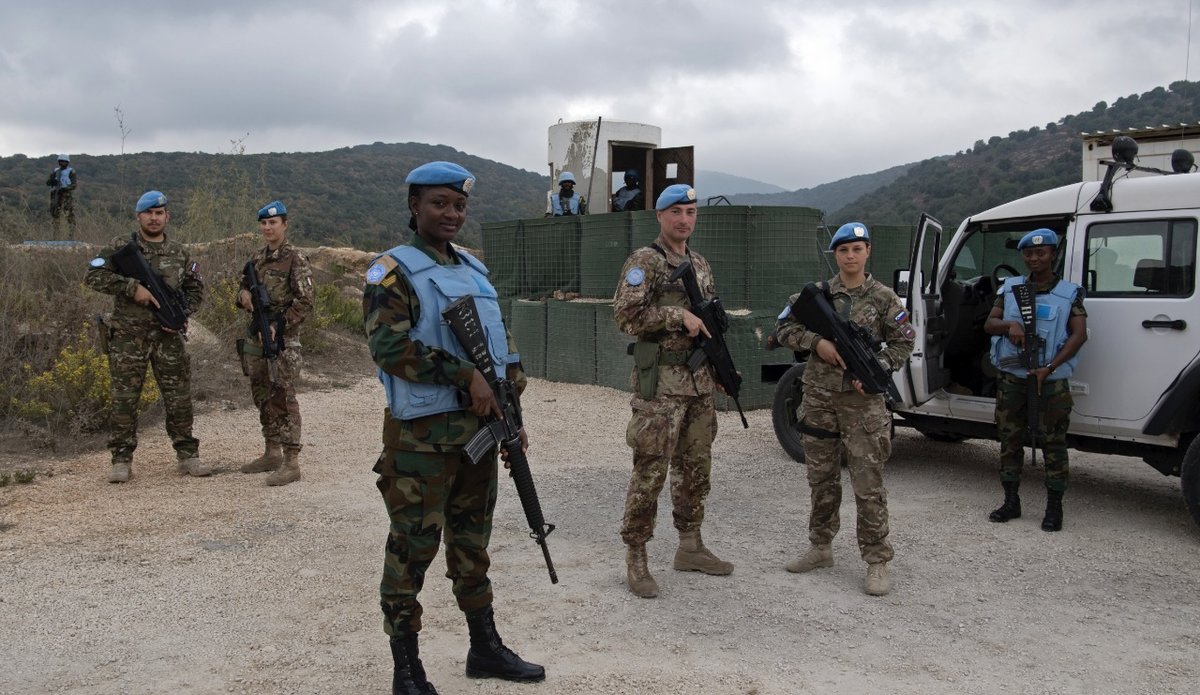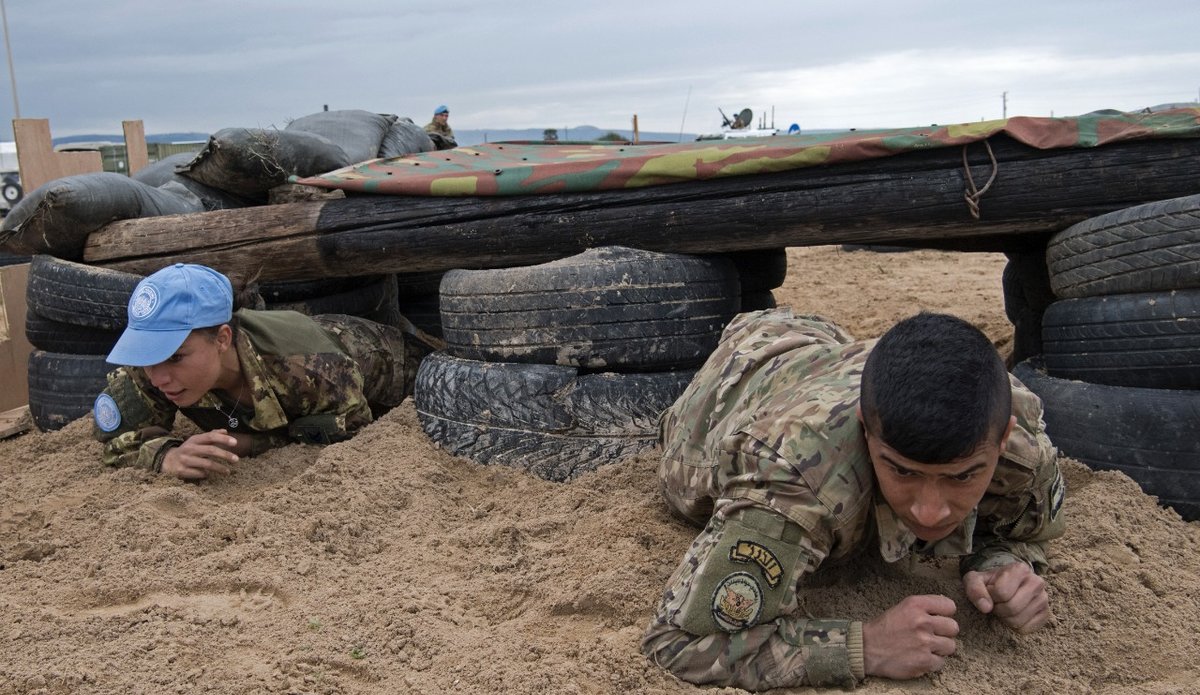UNIFIL looks at UNSCR 1325 as it turned 19
Nineteen years after the Security Council adopted its landmark Resolution 1325 on 31 October 2000, on women, peace and security, UNIFIL gender experts share their insights into how UNIFIL strives – despite challenges – to ensure women’s full participation in the Mission’s day-to-day operations.
UNIFIL female peacekeepers both military and civilian are deployed in all areas of the mission and continue to play a vital role in conducting daily operational activities and performing core tasks, including conducting patrols, participate in air and ground surveillance within the Mission’s area of operations, including radar and anti-aircraft defenses, and provide training to the Lebanese Armed Forces, the Mission’s strategic partners.
In 2006, the Mission’s female peacekeepers made up only 2.5% of the total deployment, but currently, women account for 6% of UNIFIL’s some 10,300 peacekeepers serving for peace in south Lebanon and in the territorial waters.
In August 2018, the UN Security Council requested the Secretary-General and troop-contributing countries to seek to increase the number of women in UNIFIL, as well as to ensure the meaningful participation of women in all aspects of operations. In addition, the Council requested UNIFIL to take fully into account gender considerations as a cross-cutting issue and to assist the Lebanese authorities in ensuring the full and effective participation, involvement and representation of women at all levels of decision-making.
UNIFIL Head of Mission and Force Commander Maj. Gen. Stefano Del Col has reaffirmed to uphold his commitment, which has been crucial at ensuring the Mission’s priorities in increasing the number of female peacekeepers.
“Women peacekeepers can bridge social and cultural divide, and gain a real perception of the situation of women in Lebanon to promote and respond to women’s needs, priority and interests,” said Maj. Gen. Del Col.
Therefore, he added, equality is “extremely fundamental” to lasting peace and security.
UNIFIL female peacekeepers make a positive and significant impact in peacebuilding.
For Rana Rahal, UNIFIL Gender Affairs Officer, “UNIFIL’s actions to mitigate challenges in attaining equality and integrating gender perspective is at the highest level of the operational priorities undertaken and delivered by the Mission’s peacekeepers.”
Ms. Rahal proudly pointed out that “local community sees the UN Mission as a men-and-women force both working together side-by-side to achieve peace and security in the area of operations.”
But UNIFIL has a long way to go as it continues to face many challenges in integrating gender perspectives.
For Ms. Rahal, the low percentage of women’s representation in the contingents of some of UNIFIL’s contributing countries needs to be quickly addressed.
“One of the challenges is the low percentage of women in uniform due to the late entry of women into armies,” she added. “However, this is improving by the years and most of the troop-contributing countries are now integrating more women in different functions.”
UNIFIL continues to work in mitigating existing constraints, including through its engagement with contributing countries, towards achieving gender equality, while supporting the implementation of UN Security Council agenda on women, peace, and security in the mission and the community it serves.
Women peacekeepers contributes significantly to UNIFIL’s work in south Lebanon and the Mission needs more of them.
To learn more about UNSC 1325, click here
UNSC Resolution 1325
The UN Security Council Resolution 1325 on women, peace and security (WPS) was adopted on 31 October 2000, and it reaffirms and emphasizes the contributions women make to conflict prevention, peacekeeping, and conflict resolution and urges all actors to increase women's participation and incorporate gender perspective in all UN peace and security efforts.
Since its adoption, women have increasingly become a part of the UN peacekeeping operations, where female peacekeepers act as role models in the local environment, inspiring women and girls in often male-dominated societies to push and advocate for their own rights and for participation in peace processes.
 UN
UN United Nations Peacekeeping
United Nations Peacekeeping











